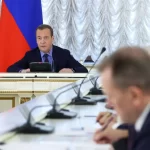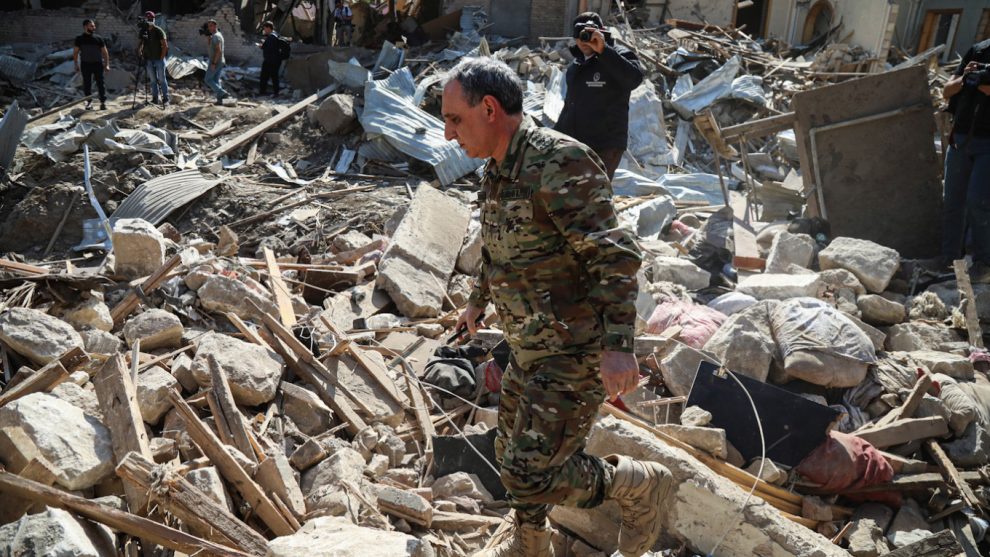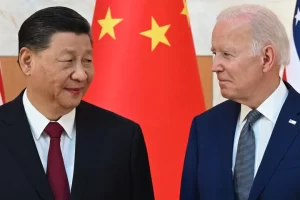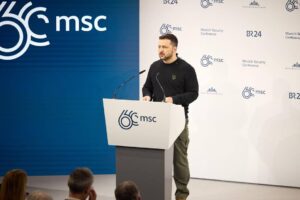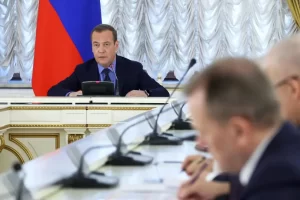The deputy prime ministers of Armenia and Azerbaijan will hold a joint meeting of border delimitation and security commissions in Moscow on Tuesday. But the main event will take place the next day: the leaders of the two countries, Nikol Pashinyan and Ilham Aliyev, will meet in Brussels through the mediation of European Council President Charles Michel. In Moscow the negotiations will touch upon implementation of technical agreements, while in Brussels the main unresolved issue will be: whether Yerevan and Baku are ready to sign a peace treaty and draw the line under the more than 30-year-old conflict, says Kommersant.
The shift of the center of diplomatic efforts to the European site is connected with the dissatisfaction of both sides with Moscow’s mediation efforts. Against the background of the geopolitical confrontation caused by the conflict in Ukraine, Brussels is trying to use it to take over the role of the main peacemaker from Russia, the Russian media notes.
Who goes to Moscow, who goes to Brussels?
The joint meeting of the two national commissions on border delimitation and security, which will be chaired by Deputy Prime Ministers of Armenia and Azerbaijan Mher Grigoryan and Shahin Mustafayev on Tuesday in Moscow, will be the second meeting in this format. The first meeting was held on May 24 on the border between the two countries – immediately after Nikol Pashinyan and Ilham Aliyev signed decrees on the creation of the national commissions after negotiations in Brussels on May 22 with the mediation of European Council president Charles Michel.
Ahead of the 30 August meeting, Russian and Azerbaijani Prime Ministers Mikhail Mishustin and Ali Asadov last week discussed on the sidelines of the Eurasian Economic Union heads of government meeting in Cholpon-Ata the implementation of the trilateral statement of November 9, 2020 by the leaders of Russia, Azerbaijan and Armenia, which ended the second Karabakh war. During the meeting, Ali Asadov pointed to the importance of resolving current issues within the trilateral working group led by the deputy prime ministers. “There is serious work going on there. We hope that it will continue until the end,” Ali Asadov said. “It is very important to ensure all the decisions that have been made about the tripartite commission in order to reduce the tension in the region,” the Russian premier formulated Moscow’s position.
However, despite the work on the implementation of trilateral agreements reached earlier through the mediation of Moscow, Baku and Yerevan feel a growing need to continue negotiations on another, European platform – with the mediation of European Council President Charles Michel.
Having previously convened the leaders of Azerbaijan and Armenia twice, in December last year and May this year, Charles Michel will host the third meeting between Ilham Aliyev and Nicola Pashinyan on August 31 in Brussels, which could be decisive for both sides in determining the future course of the peace process in the South Caucasus.
“We hope that this meeting will agree on the creation of a working group to prepare the text of a peace agreement between Azerbaijan and Armenia. But we see hesitation on the part of Armenia in terms of this process,” Azerbaijani presidential aide Hikmet Hajiyev formulated Baku’s main expectations last Saturday. “Karabakh is no longer an issue of Azerbaijan’s foreign policy. This issue has already been resolved and the OSCE Minsk Group is a thing of the past. This issue is already closed for us, now we want to establish civilized relations.
In its turn, Yerevan preferred to refrain from making statements on the meeting in Brussels. “As a result of the meeting an appropriate report with comprehensive information on the discussed topics will be disseminated,” Armenpress was informed in the press service of the Armenian Government.
Which road will lead to peace?
The meetings in Moscow and Brussels will take place against the background of the growing tension in the zone of the Armenian-Azerbaijani conflict observed throughout August.
Already at the beginning of the month there was an event that cannot be called a routine clash – the Azerbaijani military carried out a forceful action near the Sarıbaba hill in Karabakh. Baku called it “a special operation called “vengeance” “in response to the shooting of the Armenian armed forces, which resulted in the death of an Azerbaijani soldier,” the media reported.
Immediately afterwards Nikol Pashinyan stated that the events in Karabakh raise “a number of questions for the Russian military contingent.”
Last week the Armenian premier called Russian President Vladimir Putin. But the conversation between the two leaders could not ease the prevailing tensions in Yerevan, which were evident in Nikol Pashinyan’s August 23 address on the occasion of Armenia’s 32nd anniversary of independence. “The government fights every day for the independence of the Republic of Armenia. We see independence as security, but international organizations tasked to ensure this security are cracking before our eyes, and unfortunately one of the first cracks was in Nagorno Karabakh,” lamented Nikol Pashinyan. Apparently, by international structures that are “bursting at the seams” Nikol Pashinyan meant the OSCE Minsk Group. In addition, without naming Russia, the Armenian prime minister reiterated that he had accumulated questions about allied obligations. “For us independence means strong allied relations, but allies are not only your allies, but also the allies of those who are against us,” said Nikol Pashinyan bitterly.
In its turn, the Azerbaijani side including President Aliyev is dissatisfied with the stalled implementation of the agreements of November 9, 2020.
The biggest irritant is the non-implementation of the fourth point of the trilateral agreements, according to which the Armenian armed forces should leave the conflict zone simultaneously with the deployment of Russian peacekeepers, which has not happened so far. “Nearly two years have passed since the tripartite agreement was signed. But there has been no essential progress on the principal issues guaranteeing stability in the region. There is no certainty neither about the peace agreement, nor about the delimitation and demarcation issues, nor about the Zangezur corridor. At that Yerevan is desperately trying to transfer the dialogue to the platform of the OSCE Minsk group, which is dead for official Baku,” Rafiq Ismailov, director of the Baku center “For Civil Society,” told Kommersant.
“In conditions when Yerevan delays the process of negotiations, Azerbaijan has to achieve the implementation of the trilateral statement by hard, sometimes violent means, as evidenced by the recent operation of demilitarization of illegal Armenian formations in Karabakh. The situation remains explosive,” the expert sums up.
Kommersant’s interlocutors in Yerevan admit that on the eve of a new round of talks in Moscow and Brussels the situation is not in favor of Armenia.
“The events at the beginning of August showed that Baku, having military superiority, can force Yerevan to agree to its conditions. Besides, all big external actors in South Caucasus – Russia, U.S., Iran and Turkey – once again saw that the Armenian society and the state are ready to put up with another loss of territories,” political analyst Benyamin Poghosyan told Kommersan”.
According to Poghosyan, in such a difficult situation for Yerevan, the European Union, as well as the U.S., expects that the conflict will be settled and Russian peacekeepers will have to leave Karabakh after November 2025, when their 5-year mandate expires. “That is why the European Union is interested in having Yerevan and Baku agree on Karabakh’s autonomous status within Azerbaijan during the talks in Brussels in order to start real negotiations afterwards on the parameters of that autonomy,” Benyamin Poghosyan said.
His colleague Tigran Grigoryan is also very pessimistic. “Azerbaijan will speak to Armenia in the language of ultimatums, putting forward two main demands to Erevan – complete disarmament of the Karabakh army and signing of the peace agreement – and making it clear that Azerbaijan can use instruments of force pressure on Erevan to achieve its goals,” Tigran Grigoryan explained to Kommersant.
In turn, Farid Shafiyev, co-chairman of the Russian-Azerbaijani Expert Council, confirms that the priority for Baku at talks in Brussels will be the issue of peace agreement with Yerevan.
“The fundamental issue is a peace treaty based on the principle of mutual respect for territorial integrity and the obligation to renounce territorial claims in the future. All other issues – the delimitation of borders, the opening of transport communications, the resolution of a set of humanitarian problems – will depend on the conclusion of a peace treaty. The idea that we can postpone the most difficult issue to a later date and deal with technical issues now is not a success. It is necessary to cut the most problematic knot in the framework of which the question of security of Armenians of Karabakh region of Azerbaijan must be solved, that is, on the basis of territorial integrity of Azerbaijan,” Farid Shafiyev told Kommersant.
“The Russian expert community asks the question: why did Armenia and Azerbaijan open an alternative negotiating platform in Brussels, while there is already a Russian direction? Firstly, negotiations in Brussels do not mean rejection of the Russian platform. Secondly, the EU offers concrete economic assistance to both countries, and, in particular, Armenia very much counts on investments from Brussels. Third, despite the Russian president’s signature on the January 11, 2021 document, Armenia has been delaying the opening of communications from the western regions of Azerbaijan to Nakhichevan for the past year, as stipulated by Article 9 of the November 9, 2020 statement. Baku was disappointed with the lack of progress. This is another reason why the negotiation track was launched in Brussels,” the expert explains.
Source : News



